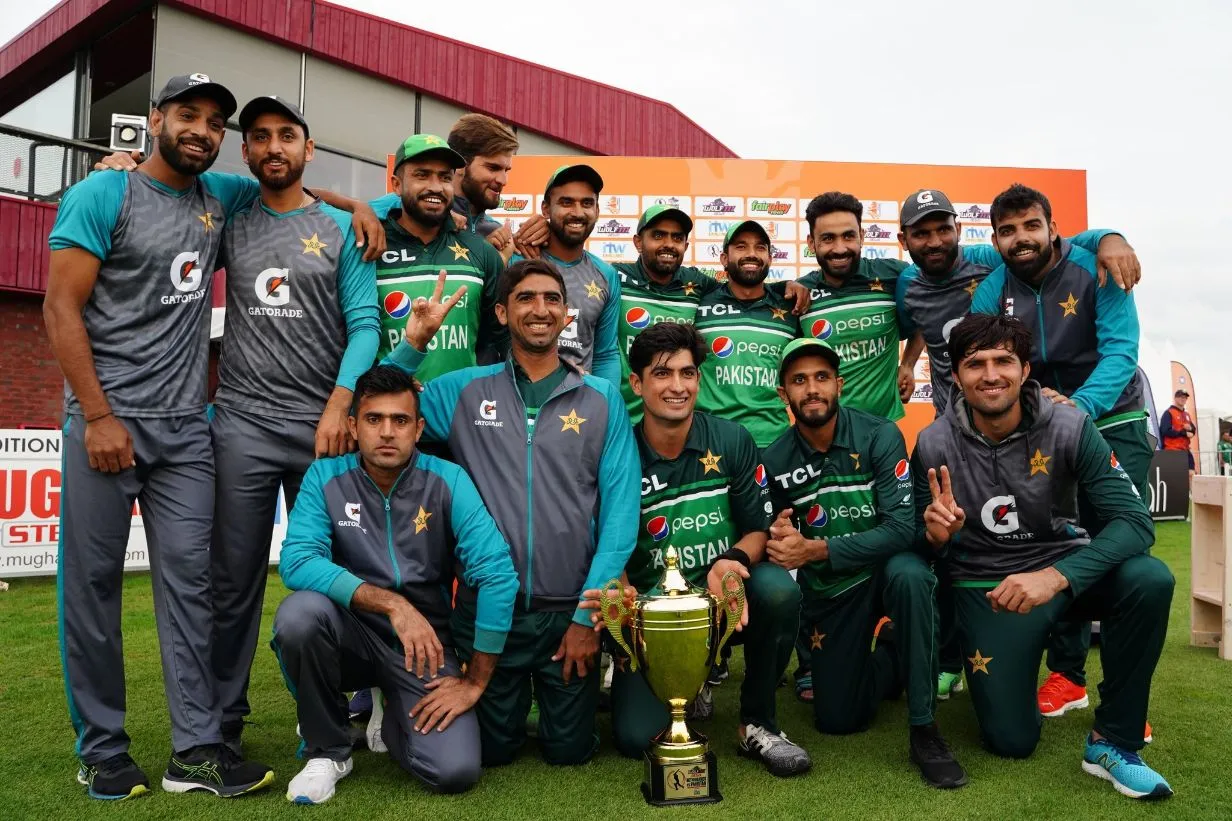 Pakistan side with the trophy [PC: Twitter]
Pakistan side with the trophy [PC: Twitter]
The modern day ODI cricket has changed a lot. New rules have come up and teams have moulded themselves according to the changing scenario. If you look at what England have done post the 2015 World Cup. They had a new leader, new aggressive approach which paid dividend four years later at the 2019 World Cup.
Change is the law of nature, but just by looking at the recently concluded Netherlands-Pakistan ODI series, a mini conclusion can be drawn that Pakistan’s middle order weakness dictates on how the top-three batters bat.
An interesting statistic just popped up in my mind. Since the 2019 World Cup, Pakistan have churned out runs at less than five runs per over in the powerplay - and this is a major cause of worry for the Asian side, especially with the 50-over World Cup scheduled for next year.
Let us dwell more into what transpired in the first ODI
 Fakhar Zaman played a run-a-ball 109 knock
Fakhar Zaman played a run-a-ball 109 knock
Pakistan won the toss and elected to bat first on a track that was suited for the batters. I may get a slack from a lot of cricketing fans, but clearly the ‘intent’ was missing in the first 10 overs. Infact, they managed just 3 runs in the first four overs against the likes of Aryan Dutt and Vivian Kingma.
Now let’s be really honest, Pakistan’s top 3 - Fakhar Zaman, Imam-ul-Haq, and Babar Azam are all quality players, but they hardly showed intent against the inexperienced bowling attack of Netherlands. Yes, they reached 314 in the end, and played a brilliant catch-up game, all thanks to the late blitz from Shadab Khan. Fakhar scored a run-a-ball 109, but his ultra-cautious approach in the powerplay (9 off 21 balls) almost cost his side the series opener.
Similar story occurred in the third and the final ODI
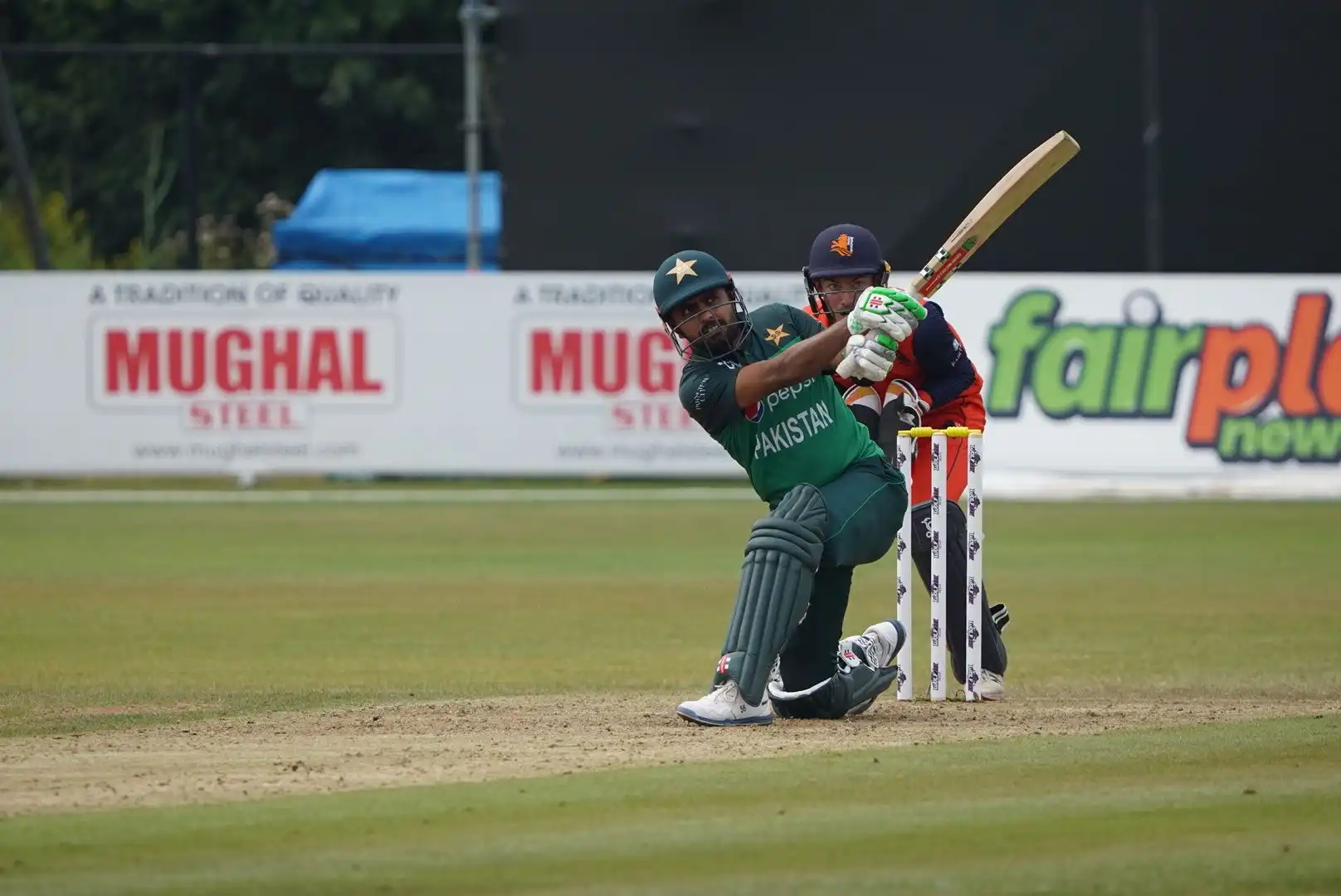 Babar played a captain's knock
Babar played a captain's knock
Pakistan had their backs against the walls, but it was not because of some terrific bowling by the home side, but because of the erratic shot selections by the batters. Skipper Babar Azam scored 91 off 125 balls, but at a strike-rate of just 72.80. Now I completely understand the context of the game.
Pakistan were in dire state when Babar came at the crease, and wickets were tumbling at regular intervals. But Babar poked and prodded with little intention to score runs.
Now there are two school of thoughts which generally comes to my mind. One school says that he played too slow and it tilted the momentum in Netherlands’ favour. However, the second school of thought says that he played according to the situation, and that was primarily because Pakistan has a weak middle order.
Middle order woes for Pakistan
Pakistan’s middle order issues shouldn’t justify how the top-3 bats. In the first ten overs, just two fielders are outside the 30-yard circle and they should capitalize on it. However, if we go deep, we’ll understand why it is a trend which has been followed since 2019. The team management has zero confidence in the middle order batters, and that puts more pressure on the top-3 to perform in every game.
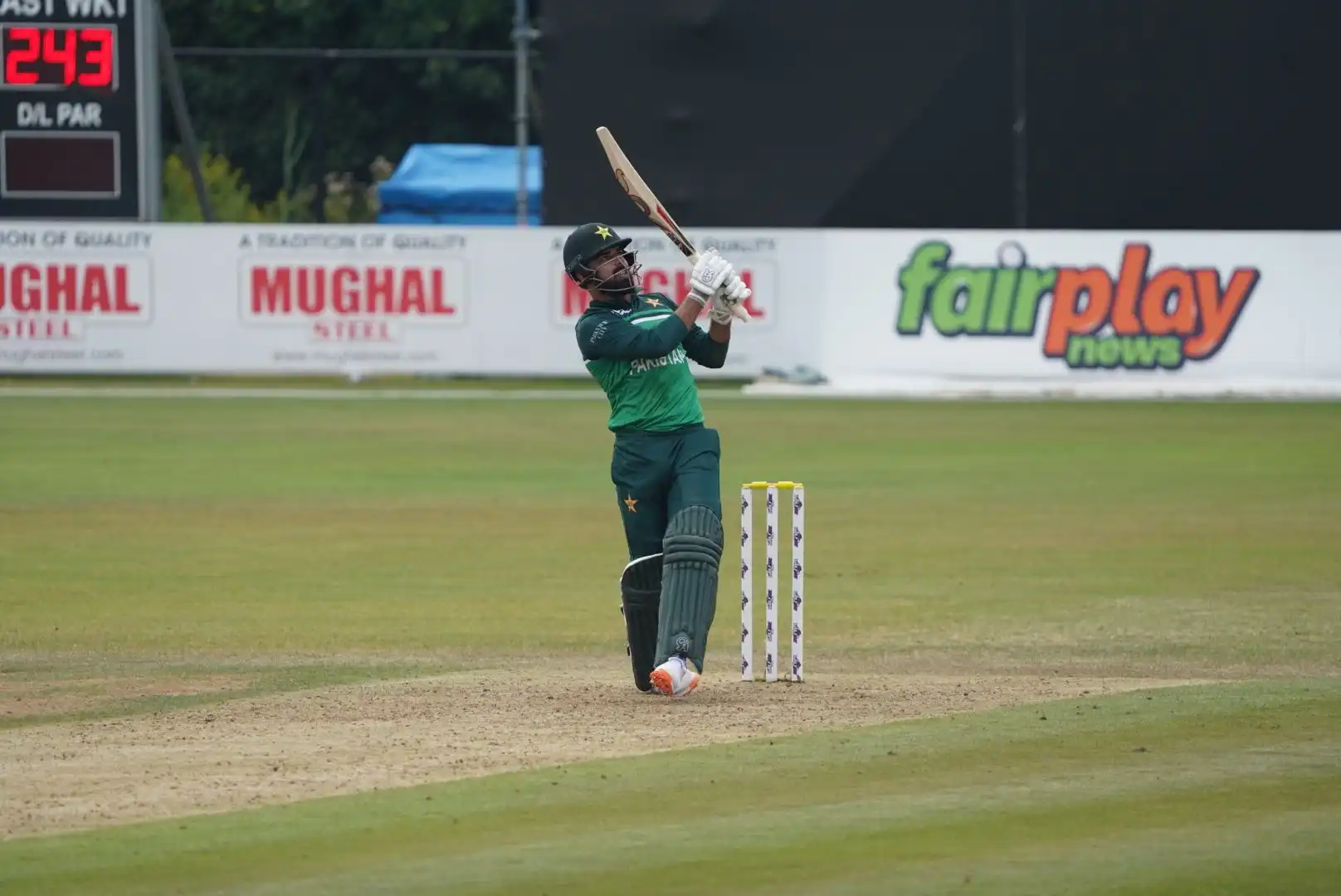 Shadab was the hero of the game in first ODI
Shadab was the hero of the game in first ODI
Mohammad Rizwan is a world beater in the shortest format of the game, but is yet to justify his talent in the 50-over format. Khushdil Shah, Shadab Khan are two of the most promising cricketers in Pakistan at the moment, but can you rely on them for big matches? Do they have the patience (can use ‘Temperament’) to play according to the situation?
Alarm bells are ringing, and the fact that Netherlands pushed Pakistan to their limits, should be a cause of worry for the team management. The potential weakness in the middle order may hinder Pakistan’s chances in the ODI World Cup. The Dutch side lost the series 3-0, but they showed a path to the other teams.
It can be argued that Pakistan barely managed to sneak past the Dutch side, but a team with better gameplan and more experience won’t give them a second chance. There’s still time left for Pakistan to ponder upon their middle order issues before time runs out for them.
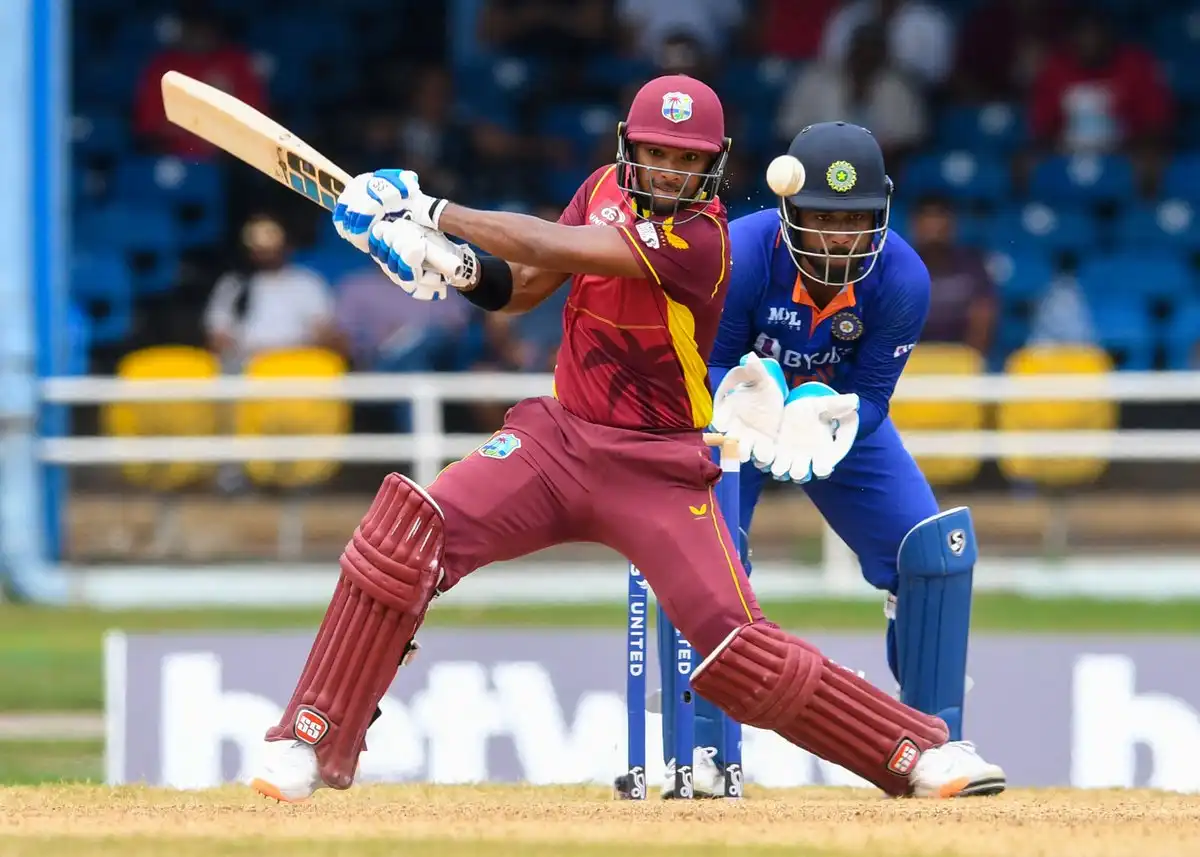

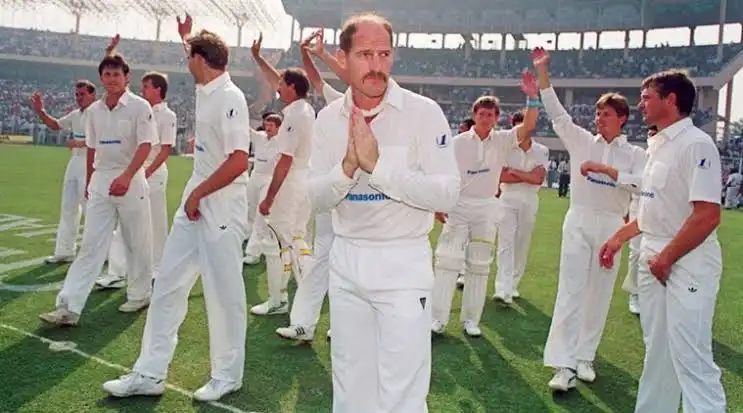
.jpg?type=mq)
